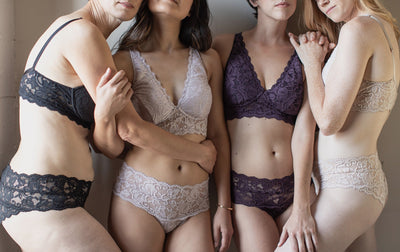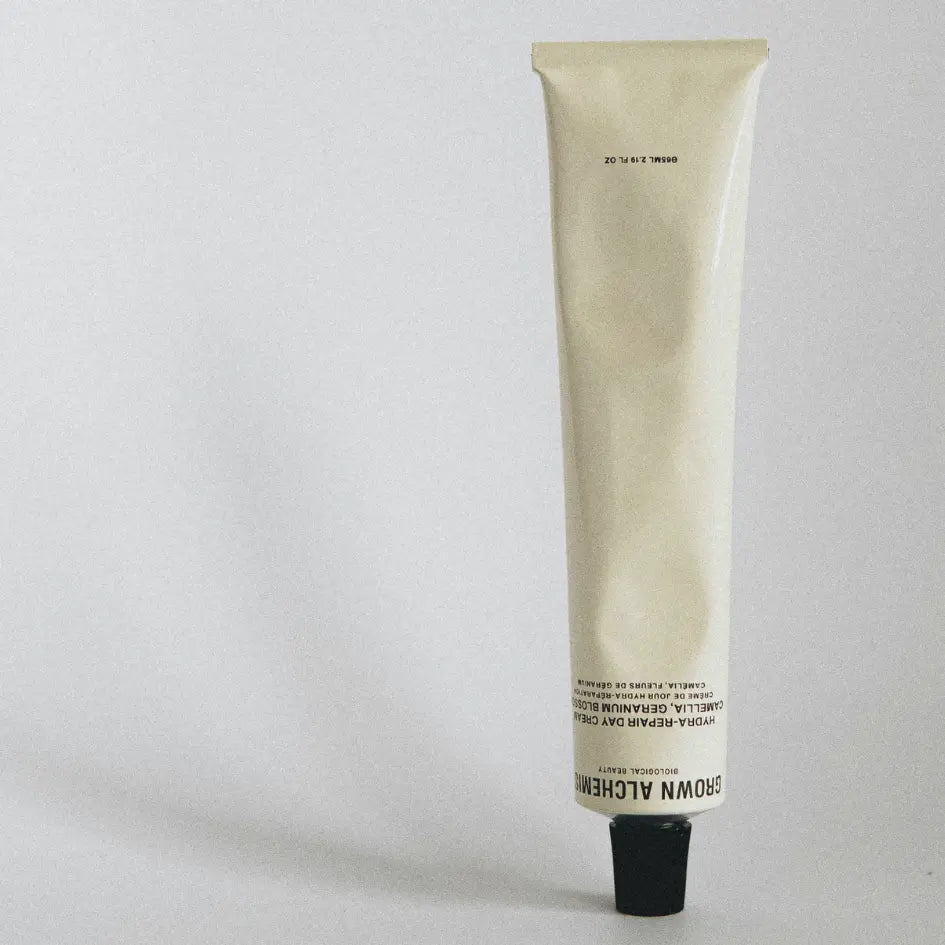Everviolet
Our ratings are based on a scale from 1 (Avoid) to 5 (Top Choice).
See how we rate.
The Shifting Gaia rating evaluates brands based on sustainable practices, ingredients and materials, and social responsibility, among others. Below are a few factors influencing this brand's score:
overview
about
Everviolet is a lingerie and loungewear brand created for women navigating changes from surgery, treatment, or other life transitions. Highlights
• Sustainable material sourcing
• Woman-owned business
• Purpose driven business model
• Strong labor transparency
sustainability
details:
Packaging
The brand uses shipping mailers made from 100% recycled, FSC-certified materials, printed with water-based inks. All packaging components, from mailers to tissue paper and postcards, contain recycled content and are either recyclable or compostable. Even value-added packaging elements are designed with circularity in mind. For example, Everviolet includes reusable “Boudoir Bags” with purchases, encouraging customers to repurpose them for travel or storage.
Ingredient Sustainability
Certified TENCEL™ Modal, a fiber from renewable beech wood pulp produced in a closed-loop process, is a cornerstone of Everviolet's fabrics. A typical fabric composition across the product line is 45% cotton, 45% TENCEL™ Modal, and 10% spandex (elastane) for stretch. Everviolet does not specify its cotton as organic. This means the cotton is likely conventional, which carries drawbacks like high water use and pesticide intensity in farming (a monoculture concern).
All trims and lace are kept to a minimum and, while not eco-friendly (the lace is a synthetic material), Everviolet is transparent about using them sparingly. The brand's material sustainability profile is tempered by the reliance on conventional cotton and necessary synthetics (spandex and nylon lace) that are not renewable but lack viable replacements.
Energy Use and Footprint
As a direct-to-consumer, small-batch brand, Everviolet inherently operates on a lower-impact model than large fast-fashion producers. The brand has not publicly disclosed specifics on energy sourcing (such as use of renewable energy in manufacturing) or quantifiable carbon reduction targets. There is no mention of carbon offset programs, lifecycle assessments, or factory energy efficiency upgrades.
Waste Management
Everviolet embraces slow fashion principles to effectively mitigate waste in its production process. The collection is produced in small batches, and the brand intentionally “sells through” its inventory rather than overproducing, thereby avoiding the common industry practice of dumping excess stock into landfills. On the manufacturing floor, Everviolet's team works on optimizing pattern cuts and garment construction to minimize fabric scraps. The brand's focus on timeless, high-quality pieces also means each garment is intended to have a long life, indirectly reducing waste by curbing the frequency of replacement.
Business Model
Everviolet's business model strongly encourages mindful consumption over fast-fashion habits. The brand explicitly positions itself as a slow fashion label, crafting pieces that are “designed to last” and remain relevant beyond seasonal trends. Everviolet also consciously maintains an evergreen product line. By creating multi-functional designs that serve women through various life stages (from puberty to post-mastectomy to menopause), Everviolet reduces the pressure to constantly buy new specialized garments
non-toxic
details:
The fabrics used in Everviolet's collection are all OEKO-TEX® Standard 100 certified, meaning they have been rigorously tested to be free from harmful levels of over 100 substances, including pesticides, heavy metals, formaldehyde, azo dyes, and phthalates. Everviolet's choice of TENCEL™ Modal fiber further supports non-toxicity: TENCEL Modal is produced with non-toxic organic solvents in a closed-loop system. Because the Modal (and cotton) fabrics are naturally soft, breathable, and antimicrobial without chemical treatment, there's no need for added antimicrobial finishes or toxic fabric coatings.
social responsibility
details:
The brand is refreshingly transparent about where and how its products are made. Everviolet lingerie is ethically manufactured in Los Angeles (USA), Mexico, and Portugal, in factories that the company has chosen with care. In fact, Everviolet participated in Fashion Revolution's campaign, sharing stories and photos of their sewing team. The LA factory Everviolet partners with is a small, family-owned facility. Beyond the atelier in LA, Everviolet mentions working with factories in Mexico and Portugal; while details are sparse, the company's promise of ethical manufacturing and its focus on “transparency and engaging with all parties in our supply chain” suggests they apply the same standards globally.
There is no indication of any labor violations, and given the brand's relatively small scale and values-driven mission, it's likely they have close oversight of production.
Everviolet is effectively a 100% vegan brand, as it does not use any animal-derived materials or engage in animal testing.
Everviolet was founded to serve a community (women healing from breast cancer and other life-altering health events) and it continues to give back to that community in meaningful ways. verviolet is a proud partner of Breast Cancer Prevention Partners (BCPP), a leading science-based advocacy nonprofit. Additionally, Everviolet has a practice of donating bras to women who cannot afford them through



